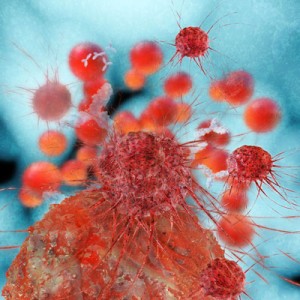Peregrine Pharmaceuticals announces promising Bavituximab Phase I Data
Posted: 1 April 2015 |
Peregrine has announced promising clinical data from a Phase I trial evaluating bavituximab therapy in patients with metastatic breast cancer…


Peregrine Pharmaceuticals has announced the peer-reviewed publication of clinical data from a Phase I investigator-sponsored trial evaluating the company’s lead investigational immunotherapy bavituximab plus paclitaxel therapy in patients with HER2-negative metastatic breast cancer.


The manuscript details the results of the Phase I trial showing that the combination produced an objective tumour response in 85% of patients, including 15% of these patients achieving a complete response, measured in accordance with Response Evaluation Criteria In Solid Tumours (RECIST) criteria.
Bavituximab may also uniquely affect the coagulation system in a beneficial way for patients
“The publication of these data marks an important milestone in the development of this novel therapeutic in a difficult to treat patient population,” said Alison Stopeck, M.D., the principal investigator on the trial and Professor, Department of Medicine and Associate Director for Translational Research at the Stony Brook Cancer Centre in Stony Brook, New York. “The regimen was very well tolerated and the clinical responses were encouraging. The data also suggest bavituximab may uniquely affect the coagulation system in a beneficial way for cancer patients. It is my belief that the combination of bavituximab with weekly paclitaxel is a feasible regimen that is associated with a promising response rate in patients with metastatic breast cancer and warrants further clinical exploration.”
Researchers at the University of Arizona Medical Centre led by Alison Stopeck, M.D. enrolled 14 patients with metastatic breast cancer (MBC) and while all were evaluable for toxicity, 13 were evaluable for response and progression free survival (PFS). These patients with HER2-negative MBC were treated with paclitaxel (80 mg/m2) weekly for three weeks of each four-week cycle and bavituximab (3 mg/kg) administered weekly beginning on day 15 after two weekly doses of paclitaxel. Results from 13 evaluable patients showed that 11 patients (85%) achieved an objective response, including two patients (15%) that achieved a complete response (CR), 9 patients with partial responses (PR) and 2 patients with progressive disease (PD). Median PFS for the combination of bavituximab with weekly paclitaxel was 7.3 months. In addition, the combination of bavituximab and paclitaxel was safe and well-tolerated with the majority of grade 1 or 2 adverse events being paclitaxel related. Approximately half of these patients were classified as “triple negative,” a traditionally difficult-to-treat patient population. In addition, treatment with bavituximab reduced circulating PS-expressing microparticles (exosomes) which are immunosuppressive.
“These compelling results in a very difficult to treat patient population provide the foundation to move with confidence into a later stage trial,” said Joseph Shan, vice president of clinical and regulatory affairs at Peregrine Pharmaceuticals. “These data build upon our historical clinical experience in the area of breast cancer and when combined with recent preclinical data demonstrating bavituximab’s ability to promote antitumor immune activity, increase our understanding of the immune-stimulatory aspects of bavituximab.”
These results are publishing in “A Phase I Clinical Trial of Bavituximab and Paclitaxel in Patients with HER-2 Negative Metastatic Breast Cancer” in the peer-reviewed journal, Cancer Medicine.
For more information about Peregrine Pharmaceuticals, please visit www.peregrineinc.com.



